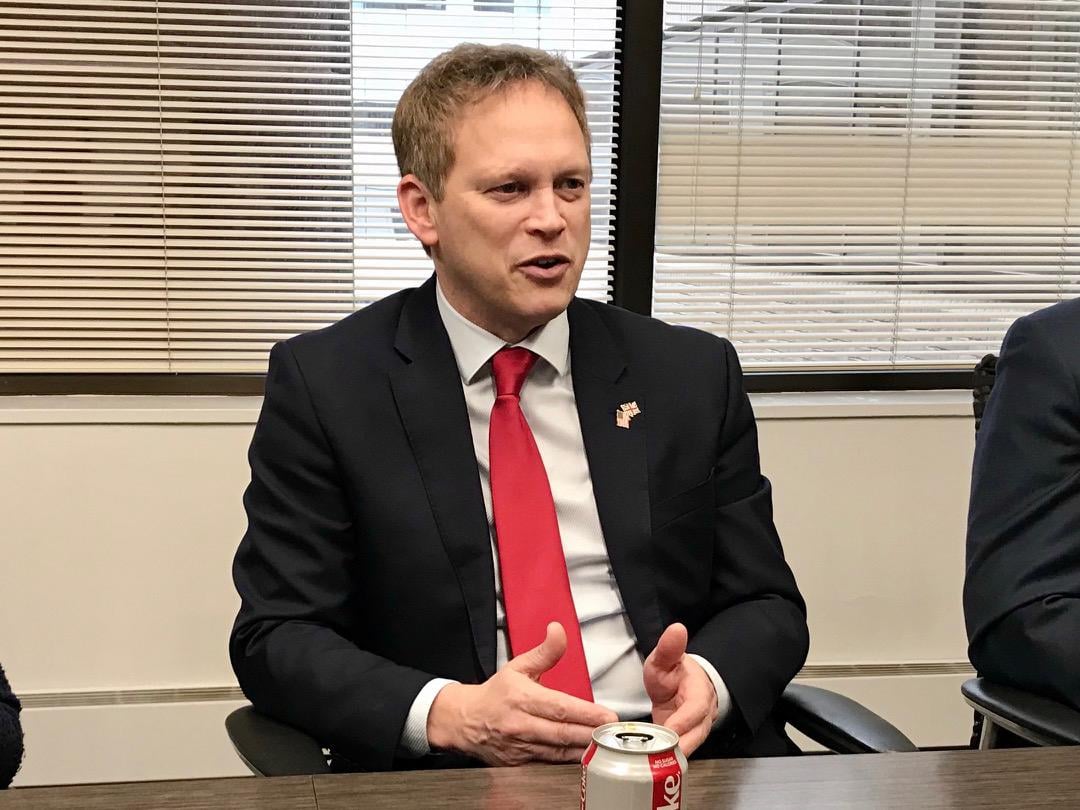
WASHINGTON—The UK will withdraw as a member state of the European Union Aviation Safety Agency (EASA) after a transition period and shift responsibility for aircraft certification and safety regulation to its own Civil Aviation Authority (CAA), British Transportation Secretary Grant Shapps said.
“We will leave EASA,” Shapps said Mar. 6 during an exclusive interview with editors from Aviation Week Network. “A lot of the expertise they have is UK expertise, in fact. A lot of the key leading lights were Brits.”
Shapps, in Washington for meetings with U.S. officials, said the withdrawal from Cologne, Germany-based EASA was being negotiated at EU headquarters in Brussels. The break will happen after Dec. 31, when EU law no longer applies to the UK.
“So, the powers will revert to the CAA, who are probably one of the world’s leading regulators and the expertise will need to come home to do that, but we’ll do it in a gradual way,” Shapps said.
Outside of EASA membership, the UK will seek mutual recognition of certifications in bilateral agreements with other countries and blocs, he said.
The CAA eventually will assume responsibility for new aircraft type certificates and airworthiness approvals. Shapps suggested urban air mobility (UAM) vehicles will be among the first examples, saying he had met with UAM developer Joby Aviation during his trip.
“Over a period of time we’ll be wanting to develop our own [aircraft] certifications,” Shapps said. “One of the things we’ll want to do is be particularly forward-leaning in technology and automation. We’ll make sure our legislative framework is in a great place to enable those kinds of organizations to excel in the UK market.”
Since its “Brexit” withdrawal from the EU in January, the UK has been considered a “third country” within EASA, a status that will continue through the end of the year.
“During this time, the UK will be treated as an EU member state but will no longer take part in any decision-making or decision-shaping activities at EASA,” the safety agency states on its website.
The transition period can be extended between the parties once by up to two years, EASA says, which does not mention any UK withdrawal. A decision to extend the transition period would have to be made by July 1, the agency says.
Shapps said EASA has initiated infraction proceedings against the UK over its decision not to enact SERA (Standardized European Rules of the Air) visibility and distance from cloud minima in Class D airspace.
A Conservative member of Parliament who serves as a cabinet secretary under British Prime Minister Boris Johnson, Shapps said his party’s decisive victory in the December 2019 general election represents a mandate for independent action. Parliament ratified Brexit a month after the election, and the UK officially withdrew from the EU on Jan. 31.
“We’ve just won the election in a very big way with a big majority and a proper sense of direction for five years,” Shapps said. “As you would expect from an independent nation, we can’t be subject to the rules and laws made by somebody else, so we can’t accept rules from the EU Commission and we can’t accept rulings in terms of court cases from the European Court of Justice or anybody else, any more than the U.S. would.”
ADS Chief Executive Paul Everitt responded to Shapps' announcement. “We have been clear that continued participation in EASA is the best option to maintain the competitiveness of our £36bn aerospace industry and our access to global export markets," said Everitt.
ADS represents more than 1,100 UK businesses in the aerospace, defense, security and space sectors.
“UK influence in EASA contributes to raising standards in global aviation, supports collaboration with our international partners, and helps make our industry attractive to the investment it needs to be home to the development of a new generation of advanced aircraft technology," Everitt said.
“Government had promised it would consider harmonization where it is in the UK interest and will be led by the evidence on the future of aviation safety regulation. We are disappointed that it has not taken a more ambitious approach. It is essential that it works with us to deliver a regime that does not put jobs at risk in an industry that employs 111,000 people in highly skilled roles across the UK,” Everitt added.
Tony Osborne in London contributed to this report.






Comments